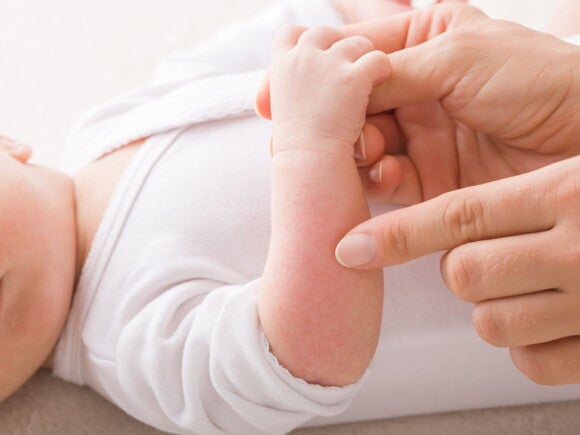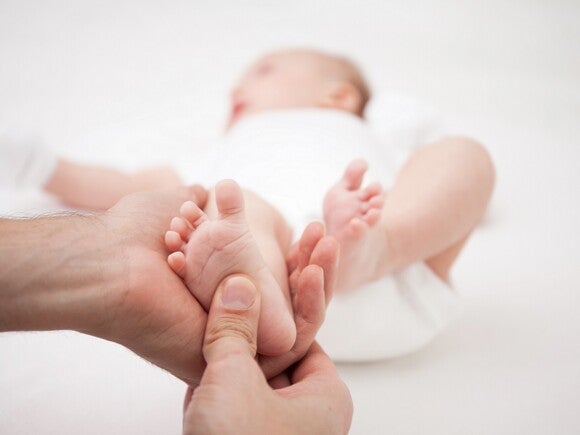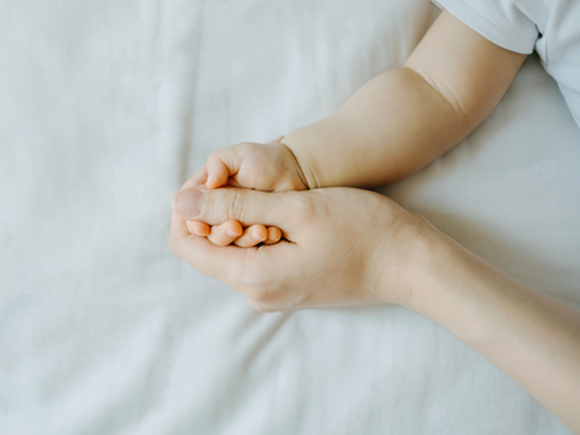What does eczema look like in babies?
Infant or newborn eczema is an inflammatory skin condition that affects around 20% of children. It is characterised by dry, red, raised, rough, itchy patches on your baby’s skin. The common areas eczema will develop on your baby’s skin are the wrist folds, back of the knees and ankle folds. Patches can become moist and infected. A doctor or specialist dermatologist will be able to diagnose eczema upon examination and advise you on the best management, which may include a baby eczema cream.
What causes eczema in babies?
Common causes are difficult to detect, triggers can include:
- Allergies to foods such as dairy protein and environmental factors such as dust and pollens;
- Intolerance to foods such as salicylates in fruit and vegetables and additives in some processed foods;
- Intolerance to scented substances such as makeup, perfume and cleaning products;
- Hereditary factors;
- Aggravation by rough or tight clothing, sand, dry air and dirt.
Does baby eczema go away?
Firstly, seek the guidance of a healthcare professional that specialises in eczema management. As the exact cause can be difficult to determine, a doctor will be able to help you narrow down what might be triggering your baby’s eczema. Managing those identified triggers of your baby’s eczema will be the best way to help your baby’s eczema go away.
Keeping a diary of when eczema flares up, where you were or what your baby ate, may help your doctor with their diagnosis.
Be diligent with daily care of your baby’s skin to keep it clean and moisturised, and intact. Your healthcare professional will advise whether you need a special baby eczema cream.
How to dress baby with eczema at night?
- Dress your baby in light, loose fitting clothes made from natural fabric;
- Wash bedding and clothes in chemical and fragrant free washing liquid and rinse well;
Tips to manage baby eczema:
- Avoid perfumed bath wash and soap – use low irritant products or just water;
- Protect your baby’s skin by applying moisturisers containing essential fats several times a day;
- When laying baby on the floor or ground for play time use cotton blankets and avoid laying baby directly on carpet, grass or sand;
- Continue to breast feed for as long as possible.
- Other topical baby eczema creams or prescribed creams may be available specially for eczema, talk to your healthcare professional for advice first before applying new creams to inflamed areas.
The good news is that most children grow out of the condition by two to five years of age.



